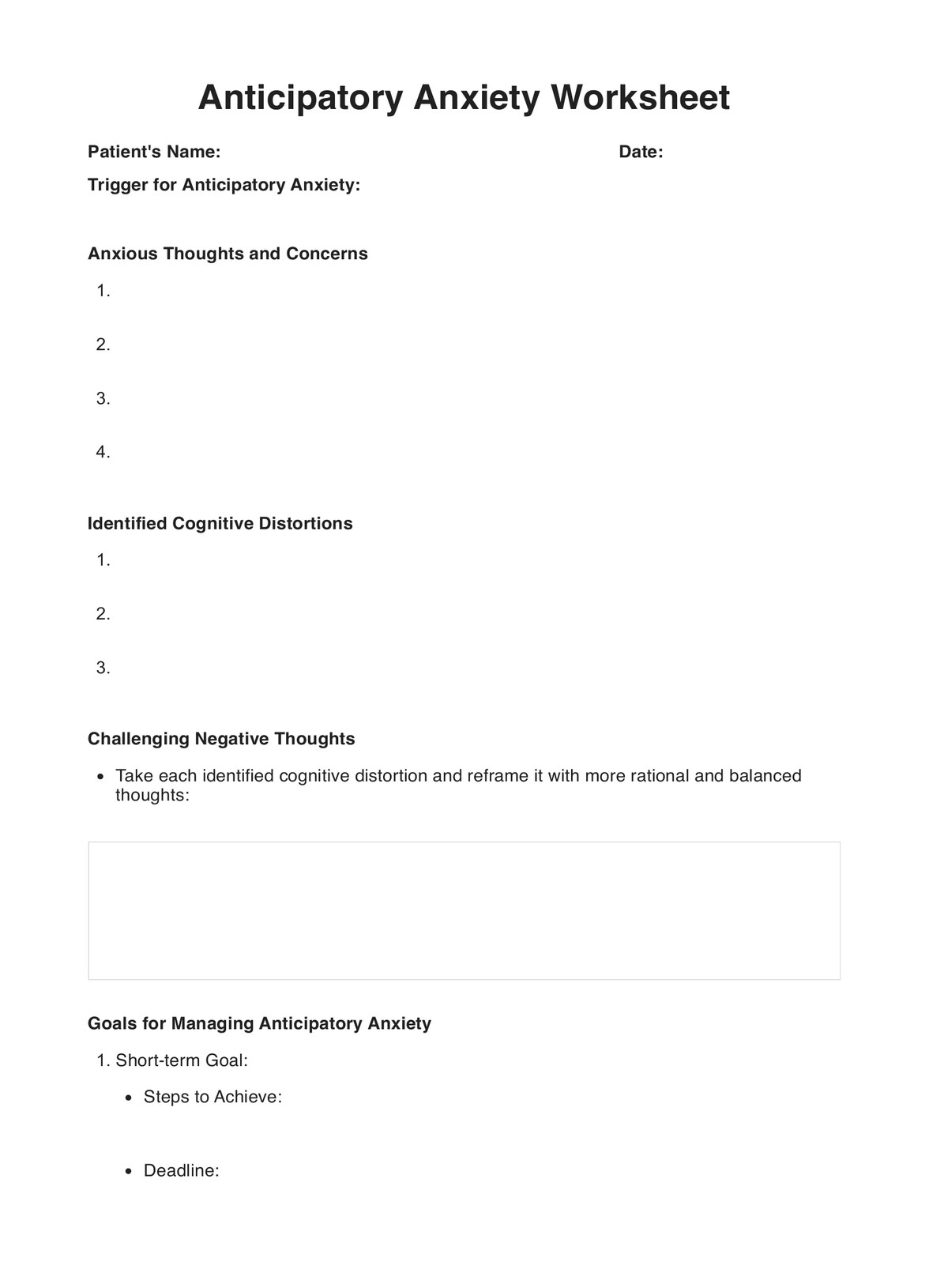Anticipatory Anxiety Worksheets are typically used by individuals facing anxiety related to upcoming events or situations and by mental health professionals in therapy settings.

Anticipatory Anxiety Worksheets
Manage anticipatory anxiety effectively with our comprehensive Anticipatory Anxiety Worksheet. Empower yourself to conquer your fears.
Anticipatory Anxiety Worksheets Template
Commonly asked questions
These worksheets are used when individuals want to manage anticipatory anxiety, which arises when thinking about future events. They are employed before, during, and after these events to address anxiety triggers effectively.
Users identify anxiety triggers, record thoughts, challenge negative thought patterns, practice relaxation techniques, set goals, and create action plans to manage anticipatory anxiety. Mental health professionals may guide individuals through this process.
EHR and practice management software
Get started for free
*No credit card required
Free
$0/usd
Unlimited clients
Telehealth
1GB of storage
Client portal text
Automated billing and online payments











